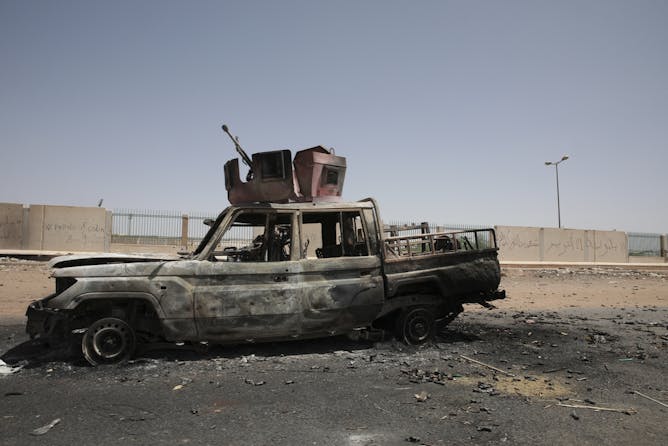|
Multinational companies exploit a system of global economic inequality, biased trade practices and unchecked corporate power. This setup, argues Bonita Meyersfeld, allows them to amass wealth while, in countries where they operate, people live in poverty – a violation of human rights. International law shields corporations from accountability for these abuses – and that, she says, must change.
Artificial Intelligence (AI) is being used to identify and preserve genes in endangered plants and vegetables that can withstand climate change. This technology is still in its infancy and once it is taken up in agriculture, it has the potential to increase the amount of food available to vulnerable communities. Plant biotechnologist Muhammad Nakhooda says African governments should use the COP29 global climate change conference to make sure that this AI tech
does not become privately owned and used purely to generate profits from food.
|

Bonita Meyersfeld, University of the Witwatersrand
Corporations that benefit from poverty should have a legal duty to mitigate the harm of poverty from which they benefit.
|

Muhammad Nakhooda, Cape Peninsula University of Technology
African governments must use the COP29 global climate change conference to make sure that artificial intelligence-driven advancements in agriculture and food production benefit all on the continent.
|

Charlie Shackleton, Rhodes University
Almost half of those surveyed couldn’t name a single national symbol. They are used to forge a national identity in many countries.
|

Samuel Adomako, University of Birmingham
Businesses need more than finance to succeed: they need to understand how to manage it.
|

Sarah Elizabeth Scales, University of Nebraska Medical Center; Blake Erhardt-Ohren, University of California, Berkeley; Debarati Guha Sapir, Université catholique de Louvain (UCLouvain); Khidir Dalouk, Oregon Health & Science University; Rohini J Haar, University of California, Berkeley
The work of estimating conflict mortality is difficult. But that doesn’t make this grim exercise, nor accounting for the broader effects of conflict, any less critical.
|
From our international editions
|
-
Konstantinos Dimopoulos, Lancaster University
Can we really understand what happened at the beginning of the universe?
-
Aidan Hehir, University of Westminster
There’s a growing clamour for Israel to be suspended from the UN over its banning of Unrwa.
-
Andrew King, The University of Melbourne; Tilo Ziehn, CSIRO
Alarmingly, Earth’s climate will change for many centuries to come. But we must still push to reach net-zero emissions as quickly as possible.
-
Leda Stawnychko, Mount Royal University
Gen Z are reluctant to step into middle management roles, but with the right approach, these roles can be deeply fulfilling and transformative.
|
|